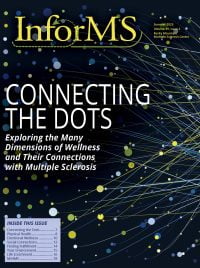Social connection is essential for our lives and improves our physical health and mental and emotional well-being. Connecting socially can take many forms in our lives. At the core, it’s about feeling close to and having a sense of belonging with others. Social connectivity encompasses the interactions, relationships, roles, and sense of connection that individuals and communities experience.
According to the National Center for Chronic Disease Prevention and Health Promotion, social connection can help prevent serious illness and outcomes, including heart disease, stroke, dementia, diabetes, depression, and anxiety. One landmark study showed that lack of social connection is a greater detriment to health than obesity, smoking, and high blood pressure.
Other studies show that social connection with others can also help improve your ability to recover from stress, anxiety, and depression; promote healthy eating and physical activity; improve sleep; improve quality of life; and prevent death from chronic diseases.
Chronic loneliness and social isolation can increase the risk of developing dementia by approximately 50% in older adults, even after controlling for demographics and health status. Social engagements with friends and family are associated with better cognitive function.
Staying socially connected is even more important when living with a chronic disease like MS. In one small study, people living with MS who had good social support felt they had less severe fatigue than people living with the disease who didn’t have good social support. A 2021 study of 185 people who were recently diagnosed with MS linked greater social support with a higher quality of life. They reported better mental health and cognitive function, and less fatigue than those without strong social support.
In 2023, U.S. Surgeon General Dr. Vivek H. Murthy recommended in a public health advisory report that social connectedness be designated as a public health priority. Isolation has been an ever-growing problem for many decades and the COVID-19 pandemic has resulted in further increasing social isolation for many vulnerable populations, including older adults. The American Psychological Association states, “The Surgeon General’s report demonstrates multiple ways that our physical and mental health are intricately interconnected and affected by loneliness, suggesting the need to develop social connection solutions because of their importance to our physical and psychological health.”
Social connection can happen in lots of different ways, including volunteering, going to social gatherings, or getting together with friends and families. In addition to the long list of mental and physical benefits of social connection, research shows us that participating in socially stimulating activities throughout our lives may have a beneficial effect on cognitive functioning as we age. For example, people participating in volunteer work had higher levels of cognitive function and had lower rates of cognitive decline than those who did not volunteer.
And it’s important to note that social connection is NOT about how many friends or close relationships you have. The benefits of social connection come from your feelings of being close to others and a felt sense of belonging. Some people can find the spark of connection by reading an article or book that makes you feel linked with others and with the larger world. Or tuning into a podcast to learn about something you’re interested in or to feel a sense of belonging with other people experiencing similar challenges. And then from there, you might think about other ways you could build on that feeling and explore connections with people in your life. Maybe it’s joining a book club, volunteering at a community organization, sending a “thinking of you” text to a friend, writing an email to someone you may have lost touch with, or scheduling a walk or running errands with a neighbor.
Embracing social connection opportunities can be daunting when navigating living with MS. For example, the heaviness of fatigue is a very real challenge that can get in the way of doing things you enjoy and getting together for time or activities with friends or family. Prioritization and planning can be a helpful strategy. If you’re planning to get together with a friend for coffee and a walk in the neighborhood on Saturday morning and you anticipate using a lot of energy that outmatches your fatigue, do your best to plan for as much rest as possible the day before and throughout the next day. That planning could mean communicating with your spouse in advance that you are looking forward to your time with your friend and that to make it happen, you’ll need their extra help with household chores or time with the kids that weekend. Equally important is giving yourself permission to put your time with your friend at the top of your priority list and putting tasks like laundry at the bottom of your priority list. Setting these expectations for both you and your care support partner or family can make a big difference.
Planning and adaptation can also be helpful when you’re dealing with other MS symptoms. If you’ve been having bladder issues such as frequent urination, and want to go on a long walk or a road trip with family, planning to make sure there are accessible restroom options throughout your trip will help your experience be more enjoyable and put your mind at ease as you look forward to the social occasion.
An internal sense of connection can be built and nurtured in other ways including asking for help. Research shows that people are willing to help, but if they aren’t asked, they assume you don’t need help. And when someone is asked for help, it increases their sense of belonging and connection, too.
Social connections can happen in many ways and forms. Recognizing its importance to our overall physical and emotional health and wellbeing is an essential first step in finding meaningful ways to incorporate it as much as possible into our lives.



